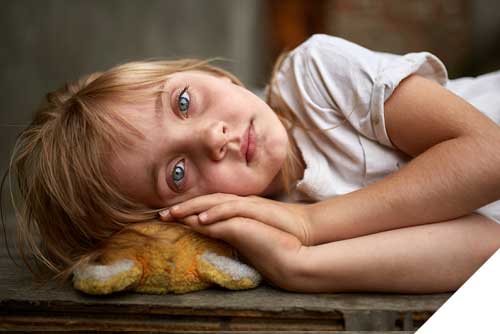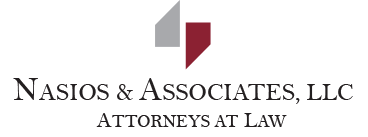 What Is the Massachusetts DCF, and How Does it Address Allegations of Neglect and Child Abuse in Massachusetts?
What Is the Massachusetts DCF, and How Does it Address Allegations of Neglect and Child Abuse in Massachusetts?
The Massachusetts Department of Children and Families (DCF) is an agency of the Executive Office of Health and Human Services tasked with protecting the children of the Commonwealth from child abuse or neglect by a caretaker. Anyone who suspects a child has been abused or neglected may contact DCF to report the concern; a mandated reporter must report suspicions of neglect or child abuse in Massachusetts, in accordance with G.L. c. 119 §51A.
What Happens If You Are Accused of Child Abuse or Neglect?
Once DCF receives a report of suspected neglect or child abuse in Massachusetts (a “51A Report”), the screening process begins. This process will likely include an initial conversation between the social workers and the reporter, a review of prior DCF involvement for the child and/or the family, as well as likely communication with others who may have information about the allegation, in order to determine whether the reported concern meets the criteria for what DCF may define as abuse or neglect. A report may be “screened in” (meaning, it is opened for investigation) before you even learn that a report has been filed about you or a member of your family. During this process, DCF will determine whether the case requires an emergency response.
A screened-in report will be referred for an investigation, which includes observing and talking with the children named in the report, as well as meeting with parents, caretakers, and others (who may include teachers, doctors, police officers and/or extended family members). Non- emergency response investigations can take up to 15 business days, and it can be a very stressful time for a family. Meetings with DCF social workers who are investigating child abuse and neglect allegations about your child or children are adversarial; this doesn’t mean that the social workers will be aggressive or uncaring, rather, that the information they are gathering will be organized and written in a “§51B” report, and can have significant consequences.
At the conclusion of the investigation, if DCF decides to “support” the allegations of neglect or child abuse in Massachusetts, then the investigators haves found (and a supervisor has approved their findings) that there is reasonable cause to believe that a child has been abused or neglected – and that the caretaker who was reported was responsible for the child abuse or neglect. At this point, that caretaker will be named to the DCF’s Central Registry.
What is a “Care and Protection” Case?
A parent has the right to raise his/her own child, but that right is not absolute. If a parent is or becomes unfit, unable, or unavailable to take care of a child in accordance with the child’s needs, another responsible adult needs to take responsibility for that child.
If DCF determines that the parents have abused or neglected a child, it may become involved in the family – and if DCF has reason to believe that the child is in imminent risk of serious abuse or neglect in his home, he may be removed from his home and placed in DCF custody until such time as parents resolve the issues that necessitated the intervention in the first instance. A “Care and Protection” case is a custody case in which DCF intervenes in the family to remove children who are at risk in their homes. The Juvenile Court has jurisdiction to hear Care and Protection cases; however, if a protective concern arises in the context of a Probate and Family Court matter (for example, a paternity or divorce matter), a Probate and Family Court judge may remove a child sua sponte (meaning “of their own accord”) from the custody of his parents as well.
In most cases where DCF intervenes in a family, parents are able to resolve the concerns that led to the DCF intervention by utilizing services offered by DCF. Given adequate time and opportunity, if the parents are unable to resolve the concerns, then DCF may move to dispense with the parents’ consent to the adoption of their child. To do so, DCF must have clear and convincing evidence proving that the parents’ unfitness is unlikely to resolve, and that a termination of their parental rights is in the child’s best interest.
Can You Appeal a Supported Report of Child Abuse or Neglect?
After the Department of Children and Families has supported a report of neglect or child abuse in Massachusetts, DCF is obligated to send you written notice of its decision. If you believe DCF has made a mistake in making its determination, you may appeal the finding by requesting a “Fair Hearing” – which is an administrative review of the decision – to review the decision. In order to preserve your rights to a Fair Hearing, you must request a hearing in writing to the DCF Fair Hearing Office within 30 days of the written notice to you of the supported decision of child abuse or neglect.
Accused of Neglect or Child Abuse in Massachusetts? We Can Help!
The parent or caretaker named in a supported report of abuse will have to jump through a lot of hoops to clear their name and regain custody of their child(ren), so it is crucial to have an attorney who has experience with Massachusetts DCF investigations to guide you through this complicated process.
With offices in Southeastern Massachusetts and Cape Cod, our attorney at Nasios & Associates will explain the process, attend meetings between you and DCF social workers, provide counsel, and help plan the next steps for your family while your case is open. If necessary, our attorney will prepare to fight a supported decision of child abuse or neglect at a Fair Hearing, and/or defend you in a Care and Protection case.
At Nasios & Associates, our attorney has decades of experience dealing with cases involving neglect or child abuse in Massachusetts. We also have decades of experience successfully dealing with the DCF, so we know how to clear your name of all child abuse or neglect allegations and restore your relationship with your children. Contact our Plymouth County family law firm today to book an appointment with our skilled child abuse attorney today.




